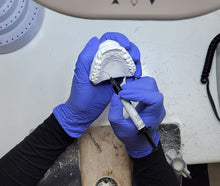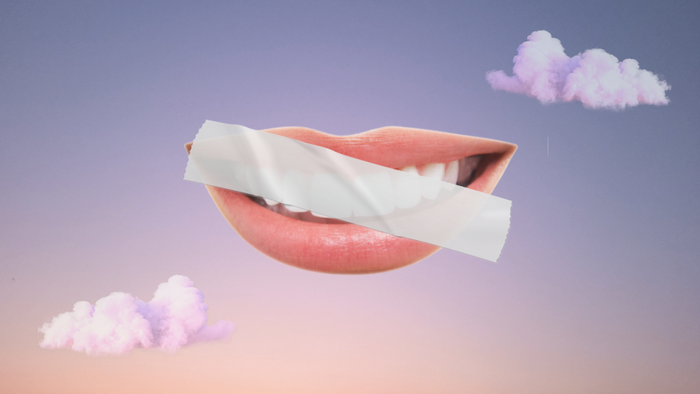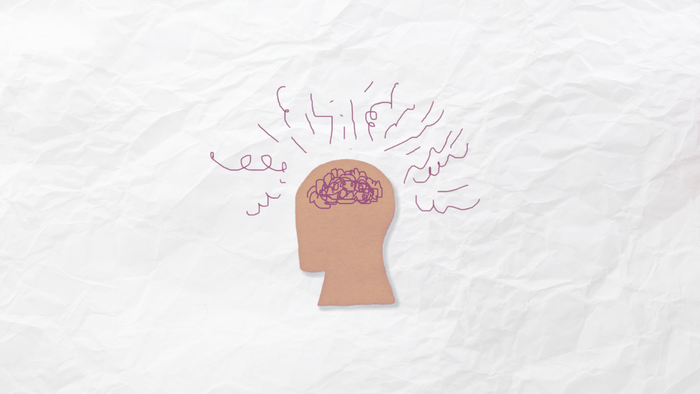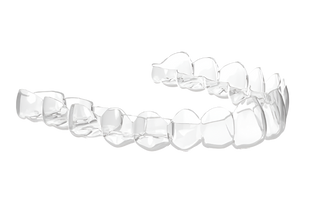Stress. Would we really be human if we didn’t experience it?
From everyday frustrations, to the pressures of work or school, to more serious life events, stress is something that most of us encounter, sometimes on a daily basis
It’s fairly common knowledge that teeth grinding and clenching is associated with stress and anxiety, but have you ever wondered why that is or how to stop grinding your teeth from stress?
Read on to find out why stress puts your teeth on edge (some of the reasons might surprise you), and to get some tips to help keep that stress level low.
Why Does Stress Make Me Grind My Teeth?
Many studies have shown a correlation between stress and bruxism (subconsciously grinding and clenching teeth). Some studies show an even higher correlation between stress and daytime clenching, than grinding during sleep.
That being said, there is some debate about whether stress and anxiety actually cause bruxism; but, there is substantial evidence to know that they are at the very least, related.
So why do we grind our teeth when we're stressed? There are a few reasons why that could be.
Fight or Flight Gone Wrong
When we’re stressed, hormones like cortisol are released and our sympathetic nervous systems become active. This triggers physical responses from our bodies, such as sweaty palms or heightened alertness.
When we are in an active stress state, our muscles are tense and ready for action (hence the term, “fight or flight”). Typically the stress we experience in day to day life is psychological, not from a physical threat, but our bodies still respond in a physical way. When this stress is prolonged over time, it can cause some real damage to our bodies.
For those of us who grind and clench our teeth, our body’s stress response may be a factor. Muscles in the jaw aren’t immune to those same stress hormones and respond in a similar way, which can result in subconsciously holding tension and clenching. This physical tension then manifests itself as teeth grinding.
Stress, Sleep, and Grinding: Triple Trouble

We all know that stress and sleep don’t usually play well in the sandbox together. Stress can disrupt the chemicals that regulate sleep. And anxious thoughts can often impede us from entering deep sleep.
A 2016 study indicated that sleep bruxism occurred the majority of the time during stages of light sleep and less than 10% of the time occurred in stages of deep sleep.
Because stress leads to less deep sleep, and grinding occurs more during light sleep, it stands to reason that poor sleep caused by stress could lead to more potential opportunities for teeth grinding.
To make matters more complicated, teeth grinding can also lead to a lower quality of sleep, which feeds into a potential vicious cycle of grinding, poor sleep, and stress.
Coping with Stress by Grinding
Another interesting theory has to do with bruxism being a way for the body to cope with stress.
There have been several studies in recent years that have found that chewing for an extended period of time - for example, while chewing gum - led to a decrease in cortisol levels (stress hormones).
In one study, scientists took that finding one step further and reasoned that because of the stress-relieving effects of chewing, teeth grinding and clenching may actually be a subconscious coping strategy that the body uses in an attempt to reduce the effects of stress.
Of course, more research would need to be done to see if that theory holds water.
How Can I Manage My Stress to Keep My Bruxism In Check?

If you think your teeth grinding and clenching might be related to stress or anxiety, there are several things you can try to help lower your stress level.
There’s no one-size-fits-all solution to chronic stress (if we knew the secret to that we would be off in an ocean side mansion somewhere instead of writing this blog), but we’ve collected some stress management tips you can try to help you stop grinding your teeth from stress.
Fast Acting Stress Relievers
For when you need stress or anxiety relief quickly:
- Focus on your breathing - take a slow breath in, count to 3, and let it out
- Take a walk
- Notice the tension in your body, then focus on relaxing your muscles
- Try aromatherapy
- Do something creative - make some art, sing, dance
- Listen to music that brings you joy
Long Term Stress Relievers
For when you’re looking to make longer-term lifestyle changes to reduce stress:
- Incorporate exercise into your daily or weekly routine
- Make time for leisure activities regularly
- Seek out support - whether from a loved one, friend, or therapist
- Work on changing your mindset - focus on positive self-talk and gratitude
- Reassess your priorities and to-do list - is there something you can say “no” to?
- Cut out things that may add to your stress whenever possible
Conclusion
Stress and teeth grinding have a complicated relationship. Gaining an understanding of it is a great first step toward not only addressing your bruxism, but also toward creating a lower stress lifestyle that will benefit your health overall. It isn’t always easy to reduce our stress in life - it’s often a lifelong journey. In the meantime, if you’re looking for another way to successfully manage your teeth grinding, we can help with our custom night guards created just for you.








